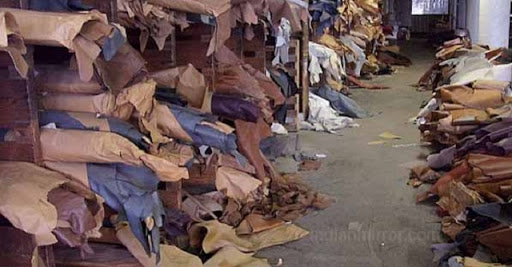Resurgent leather sector rejuvenates Bulawayo industry
THE strides being registered in the leather sector are contributing to the restoration of
Bulawayo as the country’s industrial manufacturing hub and widening of the job market,
Bulawayo Provincial Affairs and Devolution Minister, Judith Ncube, has said.
Officiating during a graduation ceremony of ‘Small to Medium Enterprises (SME) train the
trainer programme’ in footwear design held at the Leather Institute of Zimbabwe in
Bulawayo yesterday, the minister said the growth of the leather sector dovetails well with
the National Development Strategy 1, a critical road map towards an upper middle-income
economy by 2030.
A total of 21 pioneer students graduated in footwear designing.
“The workmanship and quality of the products I have been shown here assures me beyond
doubt that the leather industry is on its way up and will soon be claiming its position as a
key player in the manufacturing sector,” said Minister Ncube.
“It even gives me great joy that as Bulawayo we are making strides as we strive to reclaim
its position as the country’s industrial and manufacturing hub.
“Such efforts dovetail well into the country’s Economic Blueprint — the National
Development Strategy 1, which speaks to the nation’s drive towards accelerated
employment creation and value addition as well as President Mnangagwa’s vision of
transforming Zimbabwe into an upper middle economy by 2030.”
The SME train the trainer is a programme, supported under the Solidaridad Southern
African Development Community (Sadc) support to industrialisation and productive
sectors (SIPS) leather value chain capacity building project.
The programme was launched this year in June and is one of the key interventions towards
facilitating realisation of the Sadc Regional Indicative Strategic Development Plan 2020-
2030 (RISDP), which prioritises industrial development and market integration and places
industrialisation at the centre of the regional integration agenda.
Zimbabwe and Tanzania are part of the programme.
Said Minister Ncube: “I would like to applaud Solidaridad Southern Africa Zimbabwe office
for taking an initiative that seeks to empower the economically vulnerable members of our
community among them youths’ women and people with disabilities.”
Out of 21 students who graduated, 10 of them are women and the group includes people
with disabilities.
In a speech read on his behalf Zimbabwe Leather Development Council (ZLDC)
chairperson, Mr Clement Shoko, said the Zimbabwe leather value chain has a roadmap to
regaining its past glory of producing 20 million pairs of shoes annually and achieving
greater competitive development in the form of “Zimbabwe Leather Sector Strategy 2021–
2030”.
The strategy is aimed at increasing capacity utilisation of value-added products from 30 to
75 percent by the end of 2030, enhancing the application of sustainable production
technologies from the current 10 to 60 percent of the manufacturing companies by 2030
and increasing the export of leather products from 10 to 40 percent of production by 2030.
Mr Shoko said creating synergies in the leather sector will allow it to grow fast and be able
to meet the set goals in the leather strategy.
“The twinning of Tanzania and Zimbabwe has multiple opportunities, which need to be
highlighted. Zimbabwe has the entrepreneur skills base while Tanzania has raw hides and
skins material vantage. Let’s take advantage of these two identities to create synergies,”
said Mr Shoko.
“As a value chain we are seeking to get the Government’s uniformed departments to
source their leather products from our value chain. Let’s use the designs produced here to
invite the Government to place its orders with our leather value chain.”
In an interview, academic and ZLDC secretary Mr Jacob Nyathi applauded the SIPS
programme for promoting rural industrialisation as it targets the entire leather value
chain from farmers up to the manufacturer.
“This programme is important as it targets small player even in rural areas. So, it speaks
to rural industrialisation and we are targeting to make players to know about green
technologies so that we don’t damage our environment,” said Mr Nyathi. — The Chronicle










